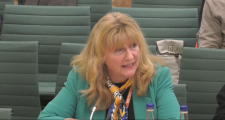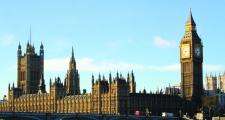BASW England gives evidence on children’s social care inquiry

The inquiry, relaunched following the General Election, focuses on improving early intervention, addressing rising demand and costs, supporting children with complex needs, and ensuring better protection and outcomes for vulnerable children and care leavers.
Appearing alongside other panellists including Jo Harrison (Co-Chair, National Network of Parent Carer Forums), Katharine Sacks-Jones (CEO, Become), and Harriet Edwards (Head of Policy, Sense), Maris used her platform to champion the role of social work in delivering vital support to children and families.
Maris highlighted the importance of systemic reform, workforce investment, curbing profiteering off the backs of vulnerable children, and early intervention to prevent crises, advocating for the unique and essential contributions of social workers in improving outcomes across children’s services. Watch the full evidence session here and read the transcript here.
The session comes at a timely moment, as the government introduces its Children’s Wellbeing and Schools Bill to parliament.
Children's Wellbeing & Schools Bill
Many of the proposals set out in the Bill stand to impact the day-to-day work of family social workers. BASW England therefore briefed all MPs ahead of its first debate in the House of Commons.
Measures being proposed in the Bill include:
- All councils will be required to hold a register of children who are not in school. Councils will be able to require parents and providers of out of school education to share information like name, address and the nature of the education children are being provided.
- A unique number for every child – in the same way every adult has their own national insurance number– to join up systems and make sure no child falls through the cracks. A consistent identifier will allow those responsible for the safeguarding and welfare of children to better join relevant data and identify children who will benefit from additional support.
- The removal of the automatic right for parents to educate children at home if their child is subject to a child protection investigation or under a child protection plan. Schools will need to check with the local authority where a parent asks to remove a child from school to home educate, to establish whether the local authority's consent should be obtained.
- If any child’s home environment is assessed as unsuitable or unsafe, local authorities will have the power to intervene and require school attendance.
- Making sure every council operates best practice ‘multi-agency’ safeguarding panels, that bring together all the professionals that can best make sure children are kept safe both inside and outside the home.
- Crackdown on excessive profit-making by children’s social care providers, including introducing a backstop law to potentially cap the profit providers can make.
The Bill passed its second reading by 364 votes to 111, and will progress to committee stage, where it will be amended and undergo more detailed scrutiny, before returning to the floor of the house to be debated again. Watch the full debate here and read the transcript here.
BASW England put forward a number of recommendations to MPs ahead of the debate for how the Bill could be strengthened, including to ensure family group decision-making complements, not substitutes, adequately resourced local authority interventions and for stronger, longer-term support for care leavers and kinship families. They also called for clearer roles and evidence for safeguarding reforms.
The full briefing can be downloaded below. BASW England will continue to raise these points with MPs and engage constructively on the legislation as it moves through parliament.

